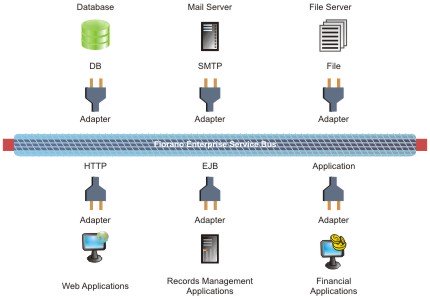Fiorano ESB™ enables Norwegian Cruise Line® to sail along with Hyperefficient Reservation System Interface

Customer Profile
NCL Corporation ("NCL") is an innovative cruise company headquartered in Miami, Florida, with a fleet of 11 ships in service. The corporation oversees the operations of Norwegian Cruise Line, NCL America, and Orient Lines. On July 4, 2004, NCL made U.S. maritime history when it introduced the reflagged Pride of Aloha, the first modern U.S.-flagged cruise ship in nearly 50 years. The 2,002 passenger ship is 100% U.S.-owned, and sails year-round in Hawai'i under the NCL America brand alongside Norwegian Wind from sister brand, Norwegian Cruise Line
Business Problem
Fleet modernization is one of the ways NCL Corporation, parent company of Norwegian Cruise Line, is moving full-steam ahead despite the economic climate. The company is also aggressively looking for new ways to both pare costs and improve service by revamping its corporate IT platforms, led by Kevin Quinlivan, NCL's chief information officer. Chief among these initiatives was a recent effort to standardize NCL's reservation system interface in order to make integration with travel partners, especially travel agent consortiums, easier and less expensive.
"The travel industry has historically lagged other industries in business automation," notes Quinlivan. "Connecting one travel provider's reservations system with a downstream sales partner typically took months of work and hundreds of thousands of dollars. What's more, each project was unique-there was no way to create a one-size-fits-all interface."
The travel industry began addressing its interoperability issues through bodies like the Open Travel Alliance (OTA), a joint initiative of travel industry business and technology leaders. OTA is dedicated to leveraging the power of advanced Internet technology, particularly XML, to create standardized messaging platforms that support data interchange between partners.
NCL, wishing to develop its own OTA-compliant connection method, began looking for a business integration software package that would enable the standardized interface. After looking at several alternative platforms, Norwegian Cruise Line chose Fiorano ESB, the Enterprise Service Bus (ESB) product from Fiorano Software, as its key enabling technology."Fiorano ESB made a lot of sense to us," said Joe Navarro, Director of Systems Development for NCL Corporation and the chief architect of the company's standardization project. "We felt it was more technically robust, especially due to the large number of easy-to-use development tools. Its support for both Java and XML also meant it could talk to a wide range of our applications and operating systems."
Solution
Fiorano ESB is the first ESB platform to offer standardized interfaces for a full range of data tasks, from communication and transformation to portability and security. Its standards-based Service Oriented Architecture (SOA) allows enterprises to draw on existing business logic residing anywhere within their application environments to quickly assemble efficient solutions for business problems.
NCL choose Fiorano ESB and began implementation several months later. The cruise line chose the Amadeus System, one of the travel industry's largest and most visible travel agency consortiums, as the first partner to connect via its new solution. Amadeus has more than 67,000 member agencies located in cities around the world; with NCL linked directly to their reservation computers, it stood to land a significant amount of new cruise business.
"We use a Unix-based hardware platform for our cruise reservation system," states Navarro. "Fiorano ESB connects directly to our core application, Freestyle Connect, as well as our Oracle database. With the help of Fiorano Senior Solution Architect and the rest of Fiorano's technical support team, we were able to create our initial message set with just a small internal group of developers, adding more people later as needs dictated."
Just two and one-half months after implementation began, the NCL-Amadeus messaging platform went into its pilot test with travel agents, experiencing exceptional results from the start. Since Amadeus is especially strong in Europe, NCL began seeing increased business from that region within a short period of time. Rollout to all Amadeus agents began three months later.

FIGURE 1: Technical architecture with Fiorano ESB
Benefits
"NCL is very pleased with Fiorano ESB's performance. We currently have integrations pending with three other travel partners," Navarro points out. "With our new standardized API (Application Programming Interface) now in place, the old point-to-point integration approach is a thing of the past. We've replaced customized, six-month integration projects with a single connectivity solution. Best of all, it's estimated that average reservation costs will decrease by over 300% per booking."
"NCL Corporation's reservations initiative underscores the ability of Fiorano ESB to significantly and positively impact enterprise systems architectures," said Atul Saini, chairman, CEO and CTO of Fiorano Software. "As an advanced and web-capable middleware solution, Fiorano ESB holds promise for a wide range of businesses and deployments."
Based on the success of Fiorano ESB in one of its most business-critical computing applications, NCL is now looking at using the integration software to interconnect other key software packages such as its PeopleSoft financial management system and its Fidelio Cruise Ship Management System, a program which coordinates all onboard computing tasks from tallying room charges to ordering supplies.
"We are excited about continuing to use Fiorano ESB for such critical tasks," said Navarro. "It has performed exactly as we hoped it would. We're seeing the efficiencies and lower operating costs we were looking for."
About Fiorano Software
Fiorano Software (www.fiorano.com) is a leading provider of enterprise class business process integration and messaging infrastructure technology. Fiorano's network-centric solutions set a new paradigm in ROI, performance, interoperability and scalability. Global leaders including Fortune 500 companies such as Boeing, British Telecom, Credit Agricole Titres, Lockheed Martin, NASA, POSCO, Qwest Communications, Schlumberger and Vodafone among others have used Fiorano technology to deploy their enterprise nervous systems.
To find out more about how Fiorano can help you meet your enterprise integration objectives, visit www.fiorano.com or Email us, we will contact you!

 Japan
Japan Germany
Germany

